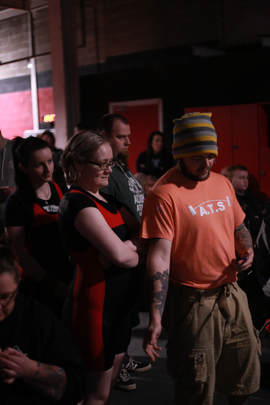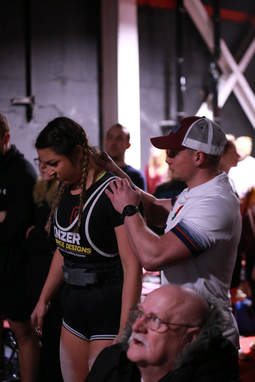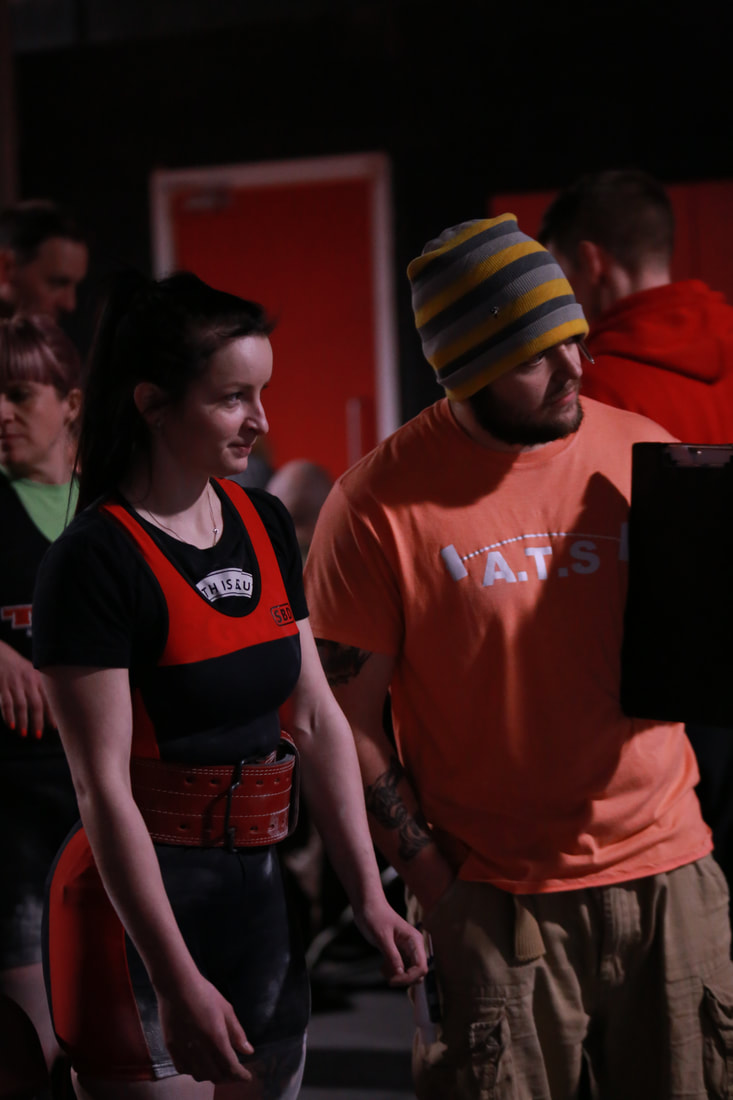Notably important rules that come in handy. -Knowing the deadline for changes to openers. If warm ups aren't going to plan, you need to know how long you have to change openers. It's not worth bombing if the lifts you had planned are just not there today. -Knowing the minimum attempt increases for records, at that competition. As well as the first past the post system. So, at championships you can set national records, as well as increase bar weight by a minimum of .5kg. However, if you are not at a championship, the only attempts you can take less than 2.5kg on, are open records. To reiterate, Junior lifter at an open comp wanting a junior record. Can only increase bar weight by 2.5kg. If he was at junior champs, he could increase by .5kg. If he was at an open comp, after an open record. He could increase by .5kg. -Knowing the reasons for technical failures on each of the lifts. Refs are not obligated to walk you through what you did wrong, at local comps they likely will, but they just need to show the relevant card/light. It helps a lot if you know what those are and can address the problem straight away. -Looking at the approved kit list and making sure who you're looking after's kit is compliant. It's also super handy to pack spares of things. Undergarments, socks/deadlift socks, chalk, talc, wrist wraps, knee sleeves. Even if you both run through what they need, there's no guarantee they'll remember to pack it. Bringing spare drinks/food never goes a miss either.  For the day of the competition there's a few things you can do before lifting begins. Arrive a little before weigh in time is due to start and speak to the organiser to find out where the weigh in will be and if there's an order (at higher level comps you weigh in in lot number order). Then make sure your lifter(s) get there on time, if not a little early. After weigh in and kit check ensure they are eating and drinking something. Then swan off to see if the order of lifting has come up on the display screens yet. This will determine how much wiggle room you have in warm ups, if your lifter is first in the group you don't have much. Whereas if they are last, you have room. Next thing on the list, is make sure they get their rack height for squat, and make sure it's right. Take into account clearance will change with weight on the bar. Also make sure that if they need blocks for bench, or the racks in for squat, that it's noted down. To reiterate, doing the rack height is on you/the lifter. At local comps people may help you, however any higher and it is on you to do on your time and make sure it's handed to the table. Same goes for bench heights. Generally, I'd say give about 3 minutes per lifter in each flight. This is just rough, but each has 1 minute to start the lift, then some time to change the weight on the bar. If it appears faster than that on the day, call it 2 minutes a lifter. With that in mind, take whenever lifting is due to start, and add on time for each lifter before yours. Now you have a rough idea of total warm up time. Similarly, I like going with between 3-5minutes per warm up set. Since it's easy to fit in, and you'll likely be sharing your warm up space with other lifters so trying to rush won't work well. To that end, if you've done quick mafs, leave a couple minutes extra on just in case.
Once they've lifted, immediately grab 'em and talk through their next attempt. DO NOT wait, you only have 1 minute to do this post lift. Give your honest opinion and write down what the lifter wants next, then show them it to make doubly sure. The music will be loud, sometimes you mishear, and once an attempt is in, it can't be changed. (The only times you can change an attempt is the last deadlift, which you can change twice, and at single lift bench where the same applies to the last lift.)
With all that done, now you just repeat the process in between lifts. Keep track of them and their kit, make sure they're where they need to be ahead of time, and you'll both have the best day possible. So, in summary, always bring pens, know where and when your lifters need to be and get them there early, it's invaluable to at least familiarise yourself with the technical rules, make sure they don't do anything overly stupid (like not eat anything because nerves). You don't need to be a sports science grad to know trying to put on peak performance with zero food or fluids isn't going to go well. I'm sure there will be other gems I've forgotten to mention, if you think of any please leave them in the comments! Otherwise have a good day, and feel free to get in touch @atsapproved. All photos courtesy of http://www.power-photo.co.uk/
4 Comments
8/11/2022 09:59:19
You've written it so well, and you have some really good ideas. This post is outstanding!
Reply
Leave a Reply. |
Archives
March 2024
Categories
All
|
Proudly powered by Weebly



 RSS Feed
RSS Feed